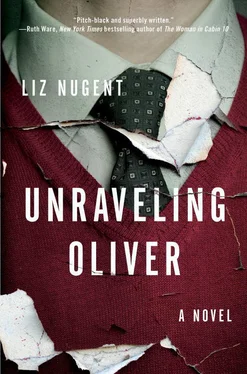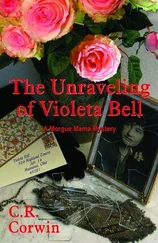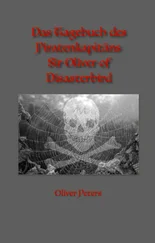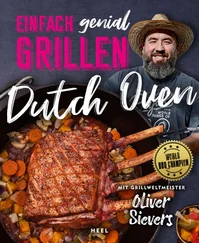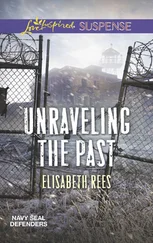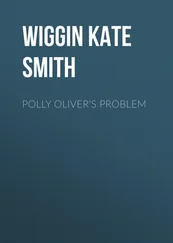When I did seek him out some months later, our meeting did not go well.
Iwas intrigued by Father Daniel’s cryptic words at my father’s funeral. I wondered if my father had left me a bequest or a message of some kind, and I was conflicted about whether I wanted to receive it. But Father Daniel had always been good to me and I wanted to see him.
Father Daniel was a great age at this point, but his mind was still sharp and the years had not dulled his compassion. I know my current circumstances would be a great disappointment to him if he were still alive, but perhaps, of all people, he might have understood my desperation.
I was led into the priest’s parlor, familiar from the few occasions of my father’s visits in school days. It had not changed at all. I could see at once that Father Daniel was agitated, and he began by telling me that he wasn’t sure if he was doing the right thing.
“Your father was a… strange man,” he stated, and got no argument from me. “I wanted to… I’m not sure if…” There was his hesitancy and uncertainty again.
It seemed there was no bequest. I wasn’t upset about that. It wasn’t as if I needed money at that stage. Father Daniel explained that my father’s estate had been left entirely to Judith and Philip. I wasn’t mentioned in the will. Judith had subsequently given Father Daniel a box containing some gold holy medals that she asked him to pass on to me. I examined them in their box. They were engraved with crucifixes.
Father Daniel tried to apologize on my father’s behalf. I brushed off the apology and accepted a small glass of Jameson to lessen the priest’s embarrassment.
“Did he ever mention to you… ? About your mother?” He looked nervous as he said it.
I sat up straight. “My… mother?” Even the words felt alien on my lips.
He shifted position in his chair. “I see, I thought not. It’s not easy… ,” he began. “We don’t have to… if you don’t want to.”
I asked for a minute and left the room and had the strongest urge to smoke as my hands began independently to reach for my cuff buttons. I paced the hall outside and was tempted just to walk away. Did I need this, did I really need to know? Of course I did. Every boy, regardless of age, needs a mother. If he can’t have her, he must at least know something about her. It is the natural order of things. Whether I needed to know was not the issue. I wanted to know. I paused before I reentered Father Daniel’s room, wondering if I would be a different man when I emerged. I asked Father Daniel to tell me everything.
“I’m sorry,” he said, “but I can only tell you what was said at the time. I have no proof of any of it, but I had friends out there at the time and they told me.”
“Out there?” I didn’t know what he meant.
“Northern Rhodesia, now Zambia,” he said. “There was an official report, but it was all hushed up. I tried to find it over the last month so that I would have something to give you, but it has disappeared. There are no records.”
These are the “facts,” as they were told to me:
My father was a young missionary priest who was sent out with three others to establish Catholic schools in rural villages along the Zambezi River in the early 1950s. In a particularly deprived and destitute village called Lakumu, where he was stationed for a year, he formed a friendship with a local native girl called Amadika.
Oh, no. My father was a pedophile priest? Oh, no. What has this to do with me?
Father Daniel was at pains to insist that Amadika was not a child. She was perhaps in her late teens or early twenties. They had a platonic relationship. She was apparently a very smart and diligent student, and it was known that my father favored her with school prizes and allowed her to cook and clean for him.
He used her as his slave? Is that it? What has this to do with me?
The school was heavily oversubscribed, and a rule was introduced that only the younger children could attend. Amadika’s mother begged my father to allow her to continue her studies, but my father refused. He couldn’t break the rules for anybody.
Apparently, Amadika was sent by her mother to sexually seduce my father in order to bargain for her right to stay in school. Father Daniel says that the natives had nothing else with which to bribe their educators, and the girl’s mother hoped that a good education might be the only thing to secure her future. It seems that my father was a particularly devout priest with ambitions, but that on this one occasion he yielded to natural urges and slept with the girl. He rejected her immediately afterward, banned her from the school, and ended their association.
Of course he slept with her. She offered herself. And then he was ashamed. What does this have to do with me?
Amadika’s pregnancy caused a scandal when she claimed that Father Francis Ryan was the child’s father. He strenuously denied it until the girl gave birth to a purely white baby—me.
No.
Impossible. No.
At this point in Father Daniel’s narrative, I reeled first with disbelief and later, shock. I had always assumed, because of what my father had said, that I was the result of an affair with a prostitute, and so had never wanted to explore the issue too deeply, especially after my birth certificate seemed to be a work of fiction, but this was just too fantastical to be credible, I thought. I was white. Father Daniel admitted that he too had found it difficult to come to terms with but swore this was the story he was told by the other priests. He insisted that Amadika was not a prostitute but rather a person forced by poverty, desperation, and circumstance to use the only thing she had at her disposal to make a better life for herself. Somehow, that rang a bell with me, but I simply couldn’t accept it.
“You have no proof!” I whispered. “You said there are no records!”
“There are none,” he admitted, “but I really can’t imagine why those who told me would lie about such a thing. I am the only person left alive who can tell you.”
I paced the room, processing what I had just been told, but it made no sense.
“Maybe I was wrong to tell you, but I thought you should know what was said. It was kept very quiet.”
I didn’t believe it and told him so in no uncertain terms. He apologized for causing any distress, and I could see that he was in anguish about having told me such a tale.
“You can just carry on as normal. It is only us who know.”
“What happened? To her?”
I tried to make sense of a tale that made no sense as Father Daniel continued his story. My story?
Amadika rejected her baby straightaway. Nobody in the village had ever seen a white baby before. She was terrified of it and shunned by her friends and her neighbors in the village, who thought that the baby’s pale sickliness had brought a curse upon the tribe. Apparently, she left the child at the door of my father’s hut and left the village with her mother. Nobody knows where she went. Nobody knew her last name.
My father had a mental breakdown. According to the other priests, he had been particularly devout. Father Daniel suggested that my father must have found it exceptionally difficult to have broken his vows. He was insistent that he had never initiated sexual contact. His lofty ecclesiastical ambitions were ruined. He was forced out of the priesthood and returned to Ireland with his unwanted son. However, because of strong connections to the Archbishop’s Palace, my father was hired as a special adviser and was warned to keep me as removed from him as possible, so as not to raise questions or provoke a scandal. They assumed, as the baby grew, as I grew, that I would develop physical signs of my black roots, that my hair might curl or my nose might flare, but I confounded their expectations by maintaining my Caucasian appearance. Most of those who knew of my existence were told I was an orphaned nephew, but my father subsequently met and married Judith within a few years and abandoned me to St. Finian’s.
Читать дальше
